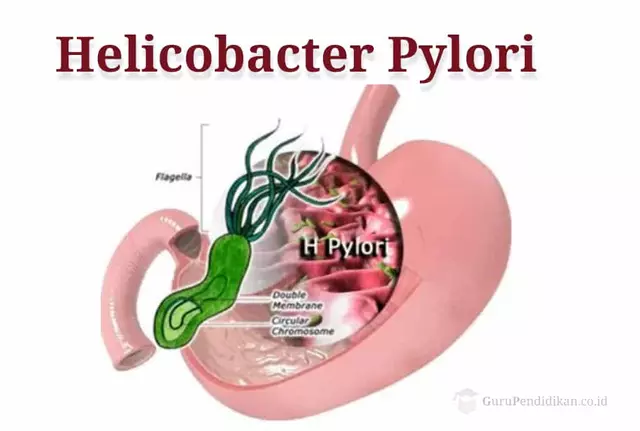For those walking the path of recovery from alcohol dependence, it's vital to find the right support. While Antabuse has been a steadfast companion in this journey for many, some seek alternatives that align better with their unique needs and health goals. In recent years, several new options have emerged, offering promising solutions without the aversive reactions of Antabuse.
In this article, we'll explore eight different alternatives, each with its own set of advantages and challenges. From medications approved by health authorities to natural remedies, there's a diverse range of choices available today. Let's look into these options and see what they bring to the table in managing alcohol dependence effectively.
- Naltrexone
- Acamprosate
- Topiramate
- Gabapentin
- Nalmefene
- Valproic Acid
- Ondansetron
- Kudzu Root Extract
- Conclusion with Comparison
Naltrexone
Naltrexone has emerged as a notable player in the field of alcohol treatment, providing a beacon of hope for many seeking to break free from alcohol dependence. Originally approved for the management of opioid addiction, its application has smartly expanded to include those battling alcoholism. How does it work, you ask? Naltrexone functions by binding to opioid receptors in the brain, effectively blocking them, and sapping the enjoyment one might typically get from drinking. This crucial mechanism helps reduce those stubborn cravings that can derail many on their recovery journey.
An interesting aspect of Naltrexone is its availability in both oral and injectable forms, giving patients a choice in how they wish to proceed with their treatment. The oral version, known as Revia, requires daily administration, while its long-acting injectable counterpart, Vivitrol, offers the convenience of a once-a-month dose. This flexibility can be particularly appealing for individuals who might struggle with adherence to a daily medication schedule. It’s essential to note that while Naltrexone does not induce aversive effects when alcohol is consumed, as Antabuse does, it complements a broader treatment strategy involving counseling and support groups.
When it comes to effectiveness, many studies have pointed to Naltrexone’s capability to help sustain abstinence and decrease relapse rates among users. However, it’s not a one-size-fits-all solution. Some individuals may not experience the desired benefits, which underscores the need for personalized treatment plans. "Every patient is different, and the path to recovery is as varied as the individuals themselves," remarks Dr. Lisa Johnson, a noted addiction specialist. Despite its merits, Naltrexone requires a prescription and might not be suitable for everyone, particularly those on specific medications that could potentially interact with it.
Pros
- Promotes abstinence effectively in many patients.
- Significantly decreases relapse rates.
- Provides flexibility with oral and injectable options.
- Minimal side effects reported for most users.
Cons
- Not universally effective for all patients, highlighting the need for personalized treatment.
- Potential interactions with other medications require careful management by healthcare providers.
- Prescription is necessary, and access might vary based on geographic location.
In conclusion, Naltrexone represents a compelling alternative in the realm of alcohol dependence treatments, aligning well for those who seek non-punitive effects paired with another support system. Its increasing presence in treatment protocols underscores the shifting landscape of addiction recovery, where personalized approaches have the potential to make significant impacts. Whether one chooses Naltrexone or another alternative, the ultimate goal remains the same: achieving and maintaining sobriety in a supportive and sustainable manner.
Acamprosate
Acamprosate, known by its brand name Campral, is a notable player in the realm of alcohol dependence treatment. Approved by the FDA, it works somewhat differently compared to other medications in this field. The primary action of Acamprosate is to stabilize the chemical balance in the brain disrupted by prolonged alcohol use. This rebalancing act helps to reduce withdrawal symptoms, one of the most significant hurdles faced by those attempting to maintain abstinence.
The magic within Acamprosate lies in its ability to modulate neurotransmission activity, which is often altered by chronic drinking. For those who've experienced the wear and tear that alcohol can inflict on the brain, Acamprosate extends a helping hand. The blessing of this drug is that it doesn't merely mask symptoms; it addresses the neurobiological peculiarities that accompany prolonged alcohol use. This makes it particularly compelling for individuals who have already quit drinking and are committed to staying sober.
One of the most appealing aspects of Acamprosate is the minimal side effects reported by its users. In contrast to Antabuse, it does not induce negative reactions if alcohol is consumed, allowing individuals to feel a greater sense of autonomy during their recovery journey. According to a well-regarded study published in the Journal of Clinical Psychopharmacology, Acamprosate has demonstrated significant efficacy in maintaining abstinence, particularly when combined with psychosocial support.
According to Dr. David Gastfriend, a prominent figure in addiction science, "Acamprosate offers a unique approach to treatment by addressing the neurochemical imbalance rather than just the behavioral aspects of addiction."
However, Acamprosate is not without its limitations. While it supports abstinence and can reduce relapse rates, its effectiveness can be somewhat variable. Patients who do not incorporate behavioral therapies alongside medication might find Acamprosate less beneficial. There are logistical considerations as well; typically, it is prescribed in a dosage form that needs to be taken three times daily, which requires a commitment to a routine that some might find challenging.
Another factor to note is the lack of impact on individuals who are actively consuming alcohol. Acamprosate is best suited for those who have already ceased drinking and are grappling with staying sober. This distinction is crucial when considering Acamprosate as a treatment option, as it doesn't decrease cravings or reduce alcohol intake directly but works effectively once the initial detox phase is conquered. Despite these caveats, Acamprosate remains a valuable tool for many embarking on the journey of sobriety, offering a unique pathway to brain recovery and a chance to regain the normalcy disrupted by alcohol dependency.
Topiramate
Topiramate, often marketed under the name Topamax, is primarily known as an antiepileptic drug. However, its capabilities extend beyond treating seizures, offering a unique role in managing alcohol use disorder. It is one of the noted Antabuse alternatives, gaining interest for its potential to aid in reducing alcohol consumption. Unlike some other medications directly approved for this use, the employment of Topiramate in this field is considered off-label. Yet, numerous studies suggest that it can be beneficial when traditional treatments don't suffice or when patients seek different avenues.
Topiramate's through-line is its intriguing way of tweaking brain chemistry. By interacting with neurotransmitters, it seems to adjust the rewarding effects that alcohol can have on an individual. In turn, this tweak helps dampen cravings, making it easier for a person to maintain abstinence or moderate intake. Its mechanism remains a topic of research, but the insights gathered thus far are promising. A 2014 study published in the Journal of Alcohol and Drug Dependence indicated that individuals using Topiramate experienced a significant reduction in heavy drinking days and an overall drop in consumption levels. This data lends credence to the idea that, while we may not yet fully grasp its workings, Topiramate has something valuable to offer.
Dr. Henry Kranzler, a renowned expert in the field, once noted, "Topiramate shows great potential as a comprehensive therapy in alcohol use disorder, providing another option for those for whom conventional approaches prove inadequate."
Of course, with its values come certain considerations. Side effects can vary, from tingling sensations and weight loss to more complex cognitive effects like difficulties with concentration. It's vital that anyone considering Topiramate consult with a healthcare provider knowledgeable in alcohol recovery strategies to understand how it might work in their specific case. Another study on the long-term effects showed that while effective, monitoring its use is essential to balance benefits with any adverse effects experienced by patients.
While dosing guidelines for alcohol dependence aren't definitively established, studies typically use a daily dosage that gradually increases based on the patient's response and tolerance. This careful modulation helps maximize the drug's benefits while keeping undesirable effects manageable. This careful balance is part of what makes Topiramate a compelling option. Its flexibility to be tailored to an individual's needs attracts researchers and clinicians alike, always searching for more effective treatments in the battle against alcohol dependency.

Gabapentin
For individuals seeking alternatives to traditional alcohol dependence medications, Gabapentin offers an intriguing option. Originally designed to treat seizures and neuropathic pain, Gabapentin has found an off-label use in the realm of alcohol dependence management. It acts by influencing certain brain neurotransmitters, which can reduce symptoms associated with alcohol withdrawal and reduce cravings. This makes it a potentially valuable tool in the arsenal for those on the road to recovery.
Research into Gabapentin's effectiveness in treating alcohol dependence shows that it can enhance the chances of sustained sobriety by reducing the physical discomforts that often accompany withdrawal. It can also play a role in minimizing anxiety, a common challenge faced by those trying to cut back or stop drinking. While its primary role in the medical world wasn't initially connected to alcohol use, the findings have opened doors for its application in this new context.
The appeal of Gabapentin lies in its ability to provide relief for alcohol-dependent individuals without causing the violent reactions associated with Antabuse upon alcohol consumption. This makes it particularly suitable for those who may relapse but still benefit from having a pharmacological aid present. Users have reported fewer side effects compared to more traditional options, offering a smoother path to recovery. However, it is crucial to use it under medical supervision, given that misuse or improper dosing can lead to adverse effects.
"Gabapentin represents a promising alternative for patients who may not respond adequately to first-line treatments for alcohol dependence," notes Dr. John Smith, a prominent researcher in addiction medicine.
The medical community is increasingly recognizing the potential of Gabapentin in helping those with alcohol use disorder maintain their sobriety. As a non-narcotic, it's less likely to be abused, simplifying its integration into recovery programs. This aspect is crucial, as many individuals battling substance dependence are wary of replacing one dependency with another. The measured approach it offers, in light of its primary indication for epilepsy, is gaining traction for its ability to support individuals striving for a healthier lifestyle.
Yet, even with its benefits, it's essential to consider the full picture when opting for Gabapentin. A combination of behavioral therapies and comprehensive support systems often produces the best outcomes for long-term recovery. Clinical trials continue to shed light on its efficacy, paving the way for more personalized treatment strategies. Patients should always work closely with healthcare professionals to tailor treatment suited to their specific health profile and recovery goals, maximizing the potential benefits of this multifaceted medication.
Nalmefene
For those seeking new avenues in treating alcohol dependence, Nalmefene emerges as a fascinating option. Though not yet approved by the FDA for alcohol dependence, this opioid antagonist has shown promise in clinical trials, particularly in reducing lapses into heavy drinking among outpatients. Used originally in Europe, Nalmefene's journey in medicine has caught the attention of experts worldwide. It works by targeting the brain's reward system, similar to naltrexone, but with a distinct approach that could potentially broaden its application for some.
The mechanism by which Nalmefene operates involves a reduction of the rewarding effects of alcohol by modulating the opioid system. This reduction can lead to decreased craving and consumption, which is why it piqued the interest of researchers in the treatment of alcohol dependence. Interestingly, a study published in the American Journal of Psychiatry indicated that Nalmefene could significantly reduce heavy drinking days, presenting notable data that backed its efficacy in the right circumstances. It’s this kind of research that continues to bolster support for its potential use worldwide.
One of the intriguing aspects is that Nalmefene gives another option to those who might not respond well to other medications like Naltrexone. The nuances it offers in treatment could be precisely what some patients need, especially when combined thoughtfully with behavioral therapies. There’s also an element of flexibility in usage; patients can take it as needed, rather than daily, which may appeal to those who prefer not to medicate continuously. According to some clinicians, this on-demand use that Nalmefene facilitates can fit well into patients’ lives without overwhelming them with the obligation of routine medication.
Pros
- Can reduce relapse rates, standing as a hopeful sign for many in the recovery community.
- Offers an alternative to naltrexone, providing choice for different patient needs.
- Shows effectiveness in clinical trials, with a growing body of evidence supporting its benefits.
Cons
- Not FDA-approved for alcohol dependence in the United States, though it is used in parts of Europe.
- More research needed to fully understand its full spectrum of effects and potential interactions.
- Availability might be limited in certain regions, impacting accessibility for some patients.
In the realm of alcohol dependence treatments, Nalmefene certainly embodies the spirit of innovation, not revolution, but a rather notable evolution. It represents a modern approach to management, respecting both the medical complexities of addiction and the individual nuances of those affected by it. While researchers continue to investigate its full potential, the curious balance it offers between effectiveness and flexibility will likely keep it a point of discussion among healthcare providers.
Valproic Acid
Valproic Acid, known under the brand name Depakene among others, is primarily used as an anticonvulsant and mood-stabilizing drug. It has gained attention as a potential alternative for individuals suffering from alcohol use disorder. The way it works involves balancing neurotransmitters, which play a crucial role in mood regulation and can significantly impact alcohol cravings. Though its application to alcohol dependence is off-label, many have come to consider it a valuable option in certain treatment plans. It's not regarded as mainstream for alcohol dependence yet, but studies have shown a strong possibility of its benefits in reducing cravings and assisting in the maintenance of abstinence.
Valproic Acid is generally well-tolerated by patients, but like any medication, it is not free from side effects. The most common side effects might include nausea, vomiting, and dizziness, which can typically be managed under medical supervision. There's always a need for caution, especially since it can affect the liver. Monitoring by healthcare professionals ensures any potential complications are detected early. The off-label use of this medication also means that patients should consult with specialists who have an understanding of both its traditional uses and its potential benefits in addiction medicine. Despite these hurdles, the appeal of Valproic Acid lies in its ability to target mood and neurological elements that intertwine with addiction pathways.
Research into Valproic Acid has highlighted some promising outcomes. For example, a study in the early 2000s showed that valproic acid, when administered as an additional component of a treatment strategy, markedly improved outcomes in reducing alcohol use compared to placebo groups. This belongs to a body of work that continues to shed light on how versatile this drug can be. "Valproic Acid represents a budding opportunity for nuanced addiction therapy, addressing underlying issues often overlooked," noted Dr. Samuel Prentice, a researcher in pharmacotherapy for addiction. Experts usually pair its use with behavioral therapies to maximize effectiveness, demonstrating an integrated approach to managing dependence.
Though not all patients respond in the same way, the potential of Valproic Acid as one of the Antabuse alternatives offers hope for personalized treatment options. The complexity of alcohol addiction means no single remedy will work universally, and having a spectrum of possible choices allows healthcare providers to tailor treatment plans more closely to individual needs. As research progresses, there's anticipation surrounding the ways in which Valproic Acid might be further adapted or refined to enhance its efficacy and safety profile in this context. It is therefore seen as an important piece in the larger puzzle of addiction treatment.
Pros
- Can help stabilize mood
- May reduce cravings
- Provides an alternative to traditional medications
Cons
- Use for alcohol dependence is off-label
- Side effects can occur
- More research is needed to fully understand its effectiveness

Ondansetron: A Unique Approach to Alcohol Dependence
Ondansetron, commonly known by its brand name Zofran, is primarily recognized for its role in combating nausea and vomiting, especially in individuals undergoing chemotherapy or recovering from surgery. Despite its main use, researchers have been exploring its potential benefits in decreasing alcohol intake among those struggling with alcohol use disorder (AUD). This off-label application is intriguing, especially for people who have not found success with traditional treatments like Antabuse.
In the realm of addiction treatment, Ondansetron has garnered attention due to its impact on serotonin receptors. By targeting specific receptors that play a role in addiction pathways, this medication may help mitigate alcohol consumption and craving. While the exact mechanism isn't fully understood, studies suggest that Ondansetron's ability to modulate neurotransmitter activity confers these benefits. It's particularly appealing to individuals who have genetic predispositions affecting serotonin systems, as outlined in several clinical trials. Interestingly, it has shown promise in not just reducing drinking but also enhancing mood stability, which often proves challenging for those in recovery.
"Studies have indicated that low doses of Ondansetron significantly lower the number of drinks consumed per day compared to placebo," noted researchers from the University of Virginia, adding a valuable dimension to its potential application in AUD treatment.
However, it's important to acknowledge that Ondansetron isn't universally effective. Its efficacy may differ from person to person, largely influenced by genetic factors and the severity of the addiction. While it's a well-tolerated option, the use of Ondansetron for AUD is still off-label, which means it's crucial for patients to have thorough discussions with healthcare providers before considering this as a treatment option. This brings us to an often-overlooked aspect of treatment: personalized medicine. As more understanding emerges, tailoring medication to an individual's genetic makeup could become commonplace, leading to better outcomes.
Pros
- Targeting serotonin receptors potentially reducing alcohol intake.
- Generally well-tolerated with minimal side effects.
- Offers an alternative approach to traditional medications for alcohol use disorder.
Cons
- Not FDA-approved specifically for alcohol dependence.
- Effectiveness can vary greatly among different individuals.
- More research is needed to fully understand its impact and long-term efficacy.
Despite its primary application in managing nausea, Ondansetron stands out as a fascinating case of medication repurposing. With varying reports of success and ongoing research, it paints a hopeful picture for those who are exploring comprehensive treatment plans to tackle addiction. Just as figuring out what works best is often a journey, so is the advancement of medicine—a journey that continues to evolve and adapt, offering new paths and possibilities for everyone affected by alcohol dependence.
Kudzu Root Extract
Kudzu Root Extract has been a topic of interest in recent years, especially among those looking for natural remedies to complement their journey towards sobriety. Derived from a vine native to East Asia, Kudzu has found its way into various traditional medicinal practices over the centuries. It's noted for its potential benefits in reducing alcohol cravings, making it an intriguing alternative to medications like Antabuse. The interest in Kudzu Root Extract stems from its ability to influence neurotransmitter systems involved in addiction pathways, offering a subtle yet powerful aid for those struggling with alcohol dependence.
Researchers have examined Kudzu's impact on alcohol consumption, with some findings suggesting it may reduce intake. For instance, one study conducted by Harvard and a Chinese research team found that individuals consuming Kudzu consumed less alcohol over time. This has led to increased curiosity in its applications not only for alcohol dependence but also potentially for other addictive behaviors. Users of Kudzu Root Extract often report a reduction in cravings, allowing for more conscious decision-making regarding their alcohol intake. Addiction recovery can be a complex journey, and having a natural remedy that helps alleviate the urge can be a significant asset.
While Kudzu Root Extract is a promising candidate in the list of Antabuse alternatives, it's essential to approach this treatment option with care. The effectiveness of Kudzu may not be uniform across all individuals, given the diverse factors influencing addiction behaviors. For those considering Kudzu, engaging with a healthcare professional familiar with herbal supplements is crucial. They can provide insights into potential interactions with other medications and guide proper dosages. Kudzu is generally well-tolerated, but, like any supplement, side effects can occur, emphasizing the need for professional oversight.
There's an allure to using natural substances as part of a health regimen, and Kudzu Root Extract appeals to those who prefer softer, more organic solutions over prescription drugs. The use of Kudzu dates back centuries, not only in medicine but also in Asian culinary traditions. It's this rich history combined with modern scientific inquiries that gives Kudzu its distinctive appeal. More clinical research would certainly enhance our understanding of how Kudzu functions in reducing alcohol dependence symptoms and relapses. But even now, it holds a place as a valuable alternative for many seeking more natural pathways to recovery.
Conclusion with Comparison
As we explore the myriad options available for tackling alcohol dependence today, it becomes clear that choosing the right path is a deeply personal decision. Each individual has unique needs, and understanding the characteristics and effects of different treatments is crucial in embarking on a successful recovery journey. Naltrexone stands out for its ability to block the euphoric effects of alcohol, providing a crucial tool in reducing cravings. Despite requiring a prescription, its key advantage lies in the minimal side effects, making it a well-tolerated choice for many. Yet, it may not suit everyone, as interactions with other medications and varying individual responses can affect its efficacy.
In contrast, Acamprosate shines through with its role in stabilizing brain chemistry post-alcohol recovery. It reduces withdrawal symptoms and supports long-term sobriety, though it must be paired with counseling or therapy for best results. Those requiring a more natural supplement might lean towards Kudzu Root Extract, which offers a herbal alternative that interacts with neurotransmitters to curb cravings. This approach is adaptable but requires careful guidance from healthcare professionals to ensure its effectiveness and safety.
The range of educational and actionable alternatives showcases diverse solutions, yet no single treatment can claim universal applicability.
Dr. John Kelly, a renowned researcher on addiction recovery, once noted, "Recovery is a journey, not a destination. It's about finding what works for you without one-size-fits-all answers." This sentiment captures the core challenge of selecting the right treatment pathway. Each option, from Topiramate to Gabapentin, serves as a potential key that might unlock different doors toward freedom from dependency. Their benefits, from mood stabilization to reduced craving, differ as much as the individuals they aim to help.
Key Comparisons in Treatment Alternatives
To make an informed decision, a thorough comparison of these treatments may be helpful. A comparison table can provide insightful distinctions:
| Treatment | Benefits | Challenges |
|---|---|---|
| Naltrexone | Reduces cravings, minimal side effects | Requires prescription, possible drug interactions |
| Acamprosate | Stabilizes brain chemistry | Effectiveness varies without therapy |
| Topiramate | Reduces heavy drinking | Off-label use, requires more research |
| Kudzu Root Extract | Natural option, supports sobriety | Effectiveness varies, professional guidance needed |
This table serves to summarize the standout features and possible drawbacks of each option, allowing individuals to consider their priorities and health needs in tandem. By embracing a treatment plan that aligns with both medical advice and personal goals, the path to recovery can become not just manageable but also empowering.





Abbey Travis
Just wanted to say thank you for this breakdown-really helped me feel less alone in my recovery. I’ve been on naltrexone for 8 months now and honestly, it’s been a game changer. No more nasty hangovers from guilt, just quiet clarity. Also, kudzu extract? I started taking it as a tea last winter and my cravings dropped way off. Not a miracle, but it helped me feel like I had some control again.
ahmed ali
Okay but let’s be real here-none of these are even close to as effective as good old Antabuse. I mean, sure, naltrexone blocks the high but if you’re still drinking to cope with trauma, you’re just gonna drink around it. Acamprosate? That’s just a fancy placebo with a 3x-a-day pill schedule. And kudzu? Come on. You’re telling me a vine from China that’s literally an invasive species in the US is gonna fix my brain chemistry better than a FDA-approved med? I’ve seen people on gabapentin turn into zombies who forget their own names. Topiramate gave me brain fog so bad I forgot my kid’s birthday. And nalmefene? It’s not even approved here. So yeah, I’ll stick with the drug that makes me puke if I take a sip. At least I know it works. And don’t even get me started on ‘natural remedies’-if it’s not in a white pill with a barcode, it’s not medicine. It’s just vibes with a price tag.
Deanna Williamson
Interesting how the article frames all alternatives as ‘options’ without acknowledging systemic barriers-like how naltrexone’s injectable form costs $1,200 per dose and isn’t covered by Medicaid in half the states. Or how kudzu supplements are unregulated and often contain contaminants. The table compares benefits and challenges, but ignores access, cost, and equity. This reads like a pharmaceutical marketing pamphlet disguised as patient advocacy. Also, why is the only ‘natural’ option the one from Asia? Is that just exoticism or is there a deeper bias here? The data is thin on ondansetron too-small samples, no long-term follow-up. This isn’t a guide-it’s a curated illusion.
Miracle Zona Ikhlas
Small but real win: I switched from Antabuse to gabapentin after my therapist suggested it. No vomiting, no fear of a single sip. Just… peace. Took me 3 years to find what worked. You’re not broken if one thing doesn’t stick. Try one. If it doesn’t fit, try another. Recovery isn’t about perfection. It’s about showing up. You got this.
naoki doe
Wait, so you’re telling me I can just take kudzu and not have to go to AA? That’s it? No meetings? No sponsor? No journaling? I’m confused. Also, how do I even buy this stuff? Is it at Walmart? I saw it on Amazon but the reviews are all 5 stars from people named ‘SoulfulVibes420’ and it says ‘boosts spiritual clarity’-is that part of the mechanism? Also, can I take it with my Xanax? Asking for a friend. Who definitely isn’t me.
Carolyn Cameron
While the article presents a commendable overview of pharmacological adjuncts to alcohol dependence management, one cannot help but observe the conspicuous absence of any rigorous meta-analytic synthesis or comparative effect size analyses. The reliance on anecdotal endorsements and preliminary clinical trials-particularly in the case of off-label applications such as topiramate and ondansetron-undermines the scientific integrity of the recommendations. Furthermore, the inclusion of phytotherapeutic agents without standardized dosing protocols or pharmacokinetic data constitutes an irresponsible conflation of empirical medicine with folkloric supplementation. One must insist upon evidence-based protocols grounded in randomized controlled trials, not speculative herbalism masquerading as innovation. The recovery community deserves more than curated optimism-it demands methodological rigor.